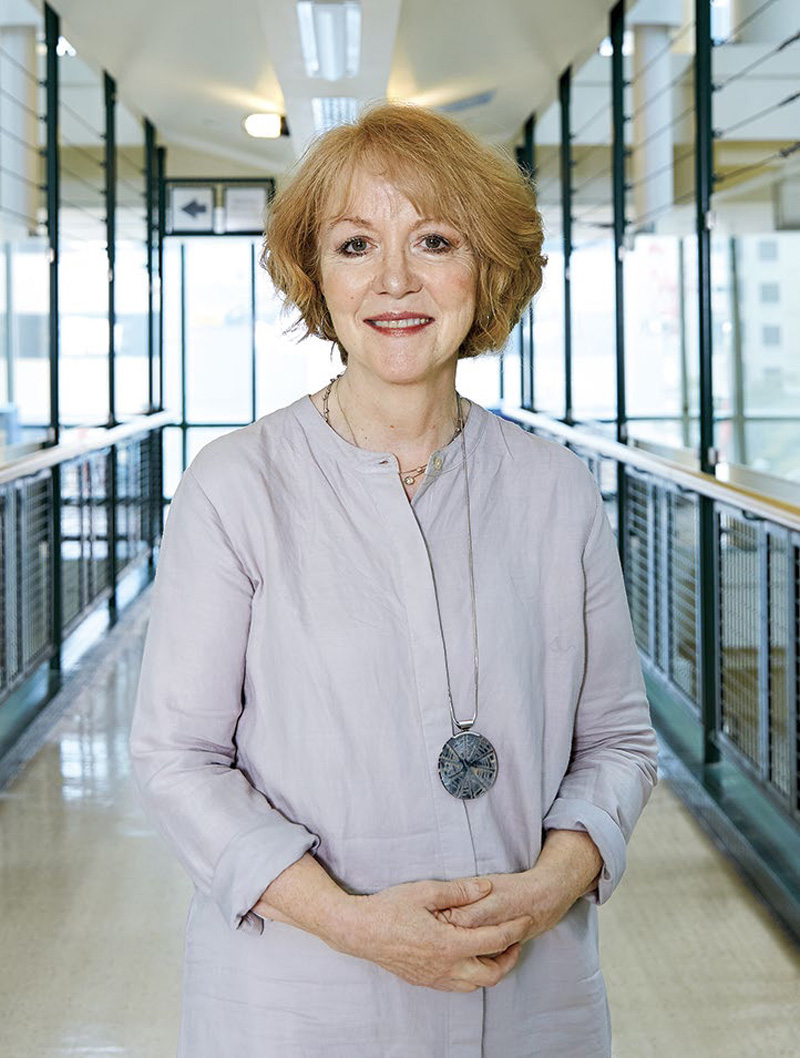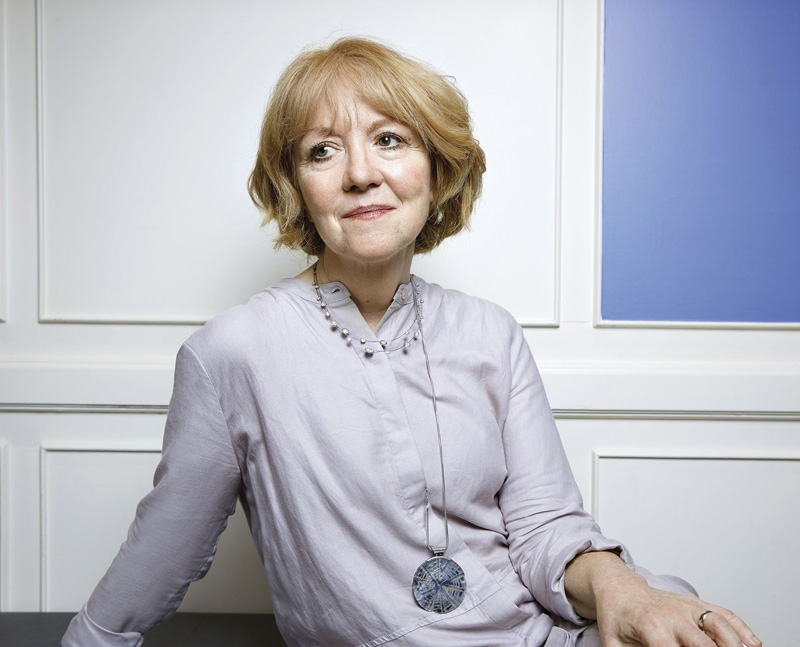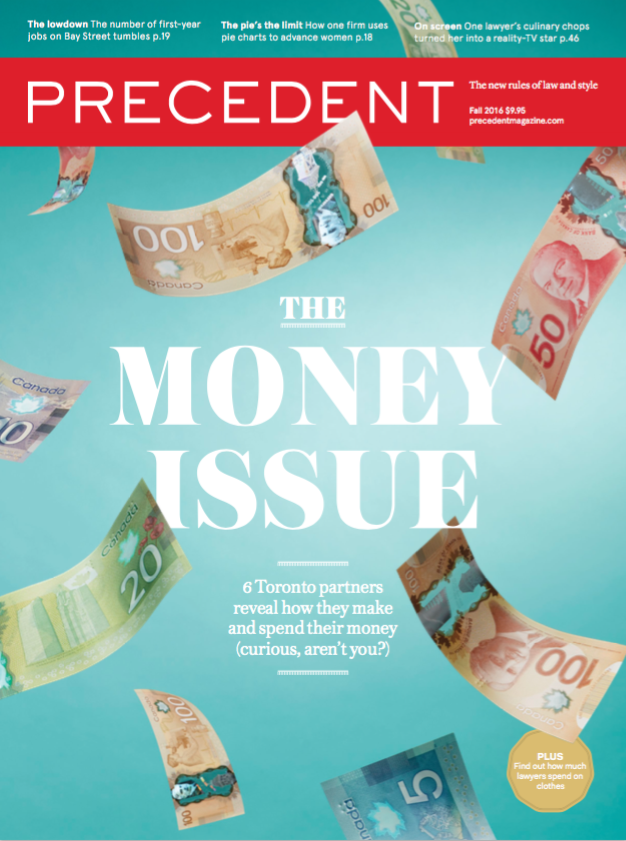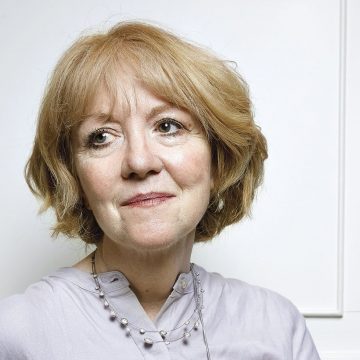“I’m going to be really unhealthy and order a Diet Coke,” says Lee Ann Chapman. No judgment here. It’s packed and scorching inside Café La Gaffe on this July afternoon. But the restaurant, on Baldwin Street, is just two blocks from the Hospital for Sick Children, where she’s an essential lifeline for patients and their parents. Chapman is a lawyer, not a doctor — yet what she does is as important as medical treatment.
How could that be? About a decade ago, the doctors and social workers at SickKids realized that, no matter how hard they tried, there were some issues they could not solve: their patients’ legal problems. The solution? A partnership between the hospital and Pro Bono Ontario. Together, they launched the triage lawyer program. The goal was to hire a lawyer to work on-site, who would provide pro bono legal services to patients. Chapman, who is 62, got the job.

“When you come from a family that feels powerless, it takes a long time to think you have a voice,” says Lee Ann Chapman
Her arrival at SickKids was a godsend. There was plenty of work to do. In one case, a parent who’d spent all her time at her child’s bedside lost her job — and she needed a lawyer to send a letter to her employer. In another, Chapman helped to secure refugee status for a sick child visiting from Africa, so she could get health-care coverage for a kidney transplant. “The doctors don’t have to know how to solve the problems,” says Chapman, who leans in close to the table as she talks. “They just have to know when it’s an issue and call me.”
“Without her, we’d be faced with all these legal problems and not even know where to start,” says Barb Muskat, director of social work at SickKids. “I can’t imagine not having her here.”
Chapman didn’t go to law school until she was 40. She grew up in London, Ont., the daughter of low-income parents. “When you come from a family that feels powerless,” she says, “it takes a long time to think you have a voice.” So Chapman never imagined that a professional career — in medicine or in law — could be in her future. During her 20s and 30s, she drifted through odd jobs, including teaching ballet and working as a sous chef. But then her husband, Bruce Chapman, a philosophy professor at the time, went to law school. “Lee was so engaged when we discussed legal issues,” he recalls. “So I encouraged her to apply to law school.” That was just the nudge she needed. Several years after Bruce graduated, Chapman enrolled in law school at the University of Toronto.
Once there, Chapman knew she wanted to work in social justice. “Lee always had strong reactions to legal questions about the most marginalized,” Bruce remembers. “Particularly when it came to children.” Her first post-law-school job was a staff position at Justice for Children and Youth, a Legal Aid clinic in Toronto. She stayed there for nine years. Then came a slew of emails from friends and colleagues telling her to apply for the SickKids role.
After seven years at SickKids, Chapman is a jack of all trades. “There’s no area of civil law I don’t cover,” she says, taking a bite of her tilapia. But the one thing she doesn’t do? Litigation. Chapman needs to be on-site — and trying cases would make that impossible. So if disputes go to court, she refers them to one of SickKids’ pro bono partners — Torkin Manes LLP, McMillan LLP and Bellissimo Law Group.
After lunch, we head to Chapman’s office. It’s cramped. Pictures of sheep hang on the windowless walls and picture books rest upright on the table. Children often come by with their parents, but if they’re too ill, she’s at their bedside.
And they don’t always pull through. “One of my first clients was a remarkable young woman,” she says, referring to a 16-year-old girl battling muscular dystrophy while in school full-time. Her school said she couldn’t take English because it fell during the period her caretakers were scheduled to take lunch. Chapman contacted the superintendent, and had the schedules rejigged. “Sadly,” says Chapman, “she died this year.”
This story highlights how important a lawyer can be to a sick child: issues always crop up in which the training and clout of a lawyer go a long way. But every year, funding for her job is uncertain. Getting enough donations to keep her — and the four other triage lawyers at Ontario hospitals — on the payroll at PBO is always a struggle.
Chapman, though, has never wavered from her choice. “There’s a tissue box beside my desk,” she says. “People cry in my office all the time. But I don’t weep with them. That’s not my job. My job is to support them and make things better.”

Lee Ann Chapman
Triage lawyer, SickKids Hospital
Year of call: 2000
Timeline of a pro bono triage lawyer
1984: Chapman begins her undergraduate degree in medieval history at York University.
1995: With two kids in grade school, she starts law school at the University of Toronto.
1998: After graduating, Chapman articles at Koskie Minsky LLP.
January 2000: Chapman is called to the bar and, soon after, starts volunteering part-time at West Scarborough Community Legal Services, a poverty-law clinic.
December 2000: Chapman begins working full-time as a staff lawyer at Justice for Children and Youth.
2009: Chapman gets a new job at SickKids that will see her help sick children and their families, for free, with a host of legal issues.
2016: Working with the father of a boy who died of cancer, Chapman drafts a bill to amend the Employment Standards Act’s restrictions on time off for bereaved parents. Currently, such parents get 10 personal days of job-protected leave. “If your child is murdered or goes missing, you get two years,” she says. The bill would give bereaved parents one year of protected leave. It passes its first reading.

This story is from our Fall 2016 issue.
Photography by Chris Tomaidis


